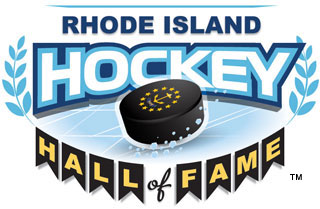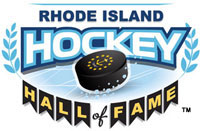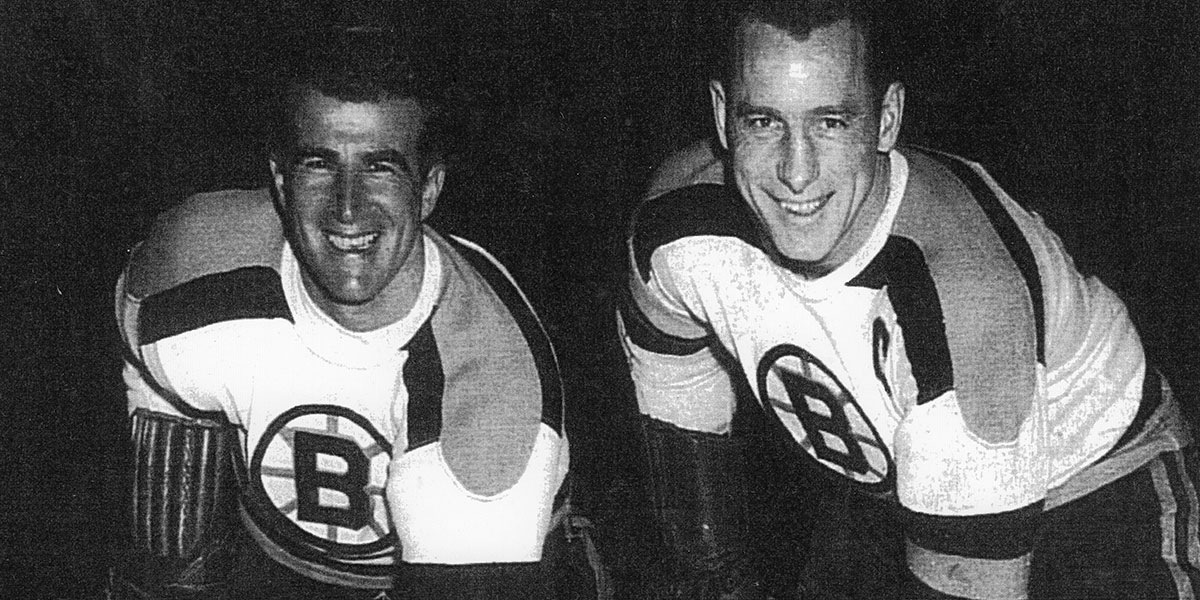No, that’s not a Photoshopped image. That really is Johnny Pesky in a Bruins uniform next to Milt Schmidt.
We all associate Pesky, of course, with baseball in general and the Red Sox in particular: Player in the ’40s and ’50s, manager in the ’60s, TV/radio announcer in the early ’70s, coach from the mid ’70s to mid ’80s, instructor and good-will ambassador for the Sox from then until his death in 2012 at the age of 93. He even managed the Pawtucket Red Sox for several months in 1990, put in the job by Rhode Islander (and then-Sox GM) Lou Gorman.
So it’s strange to discover that our first glimpse of Pesky in 1942 nearly came not at Fenway Park as a rookie shortstop for the Red Sox, but at the Rhode Island Auditorium as a winger for the visiting Hershey Bears against the Rhode Island Reds.
In addition to his baseball skills, Pesky was an excellent hockey player growing up in Portland, Oregon. Good enough that he caught the attention of some of the Pacific Coast League’s Portland Buckaroos.
“I was a helluva skater,” Pesky said in Bill Nowlin’s sublime biography ‘Mr. Red Sox: The Johnny Pesky Story.’ “[We] had some leagues out there, kids’ leagues. We also had the pros out there. One pro kind of got friendly and he told me, ‘Johnny, you ought to try [hockey].’ So he got me all set to go to Hershey to try out with the Hershey Bears — it was a Bruins’ farm team at the time and the Bruins’ scout wanted to sign me.”
But . . .
“My parents wouldn’t let me go to Pennsylvania to try out.”
That, however, wasn’t the end of Pesky’s hockey story. As he worked his worked his way up the Red Sox’ minor-league system in the late ’30s and early ’40s, he would continue to lace them up in Portland in the offseason. He worked as linesman in some of the games, and skated with the Buckaroos in practice. Even in the winter of 1941-42, when he was on the verge of making it to Boston, he was tempted — however slightly — to change sports.
“I kinda fell in love with the hockey thing and I was doing pretty good,” he told Nowlin. “This one guy says, ‘Johnny, I think you could play in the AHL.’ . . . So I went home and talked it over with my older brother and my folks, and they all said, ‘No way.’
“I wanted baseball anyway.”
Even so, Red Sox manager Joe Cronin had a devil of a time keeping him away from the rinks. Pesky would play hockey under assumed names when he was home, but after a two-goal/one-assist showing in a semipro game, he was handed a telegram from Cronin: “Stay off the ice.” He sent a wire back asking how he’d been found out, and Cronin responded: “Our scouts are paid 12 months a year. Pesky, Paveskovich” (which was Pesky’s real name) “or Smith — stay off the ice!”
After World War II, Pesky got married and began living in Massachusetts year-round. Through a mutual friend he met Schmidt, then the Bruins’ biggest star and a future Hockey Hall of Famer. Schmidt was the exact opposite of Pesky: A hockey player who was tempted by baseball. While playing for the Reds (of all teams!) in 1937, he was invited to a St. Louis Cardinals tryout. He knew, however, which sport was best for him. “I’d either hit the ball out of the park or end up walking back to the dugout [after a strikeout],” he recalled years later. “Unfortunately, I ended up walking back to the dugout more than I ended up running around the bases.”
When Schmidt and Pesky became friends, Johnny again heard hockey’s siren call.
“Johnny used to work out with us at . . . [both] the Boston Arena and the Boston Garden,” Schmidt told Nowlin. “He would take his turn just the same as everybody else did. His shooting workout. He’d skate up and down and takes shots on the net. He’d also take part in our line rushes. We always had one line that would be missing a man, so he’d take his turn there. He scrimmaged a few times with us. It was unusual, but he was such a good friend of ours and such a close friend of the bosses, they said, ‘Hey, let him go.’
Until . . .
“Joe Cronin found out about it. Then he put a stop to it.”
Once and for all. Thus ended the hockey career of Johnny Pesky.
“John could hold his own,” Schmidt said. “He was a decent skater who didn’t look out of place.”
Good enough to play in the NHL?
“I’m not in a position to say he could have made it,” said Schmidt, “but you never know.”
Posted by Art Martone


